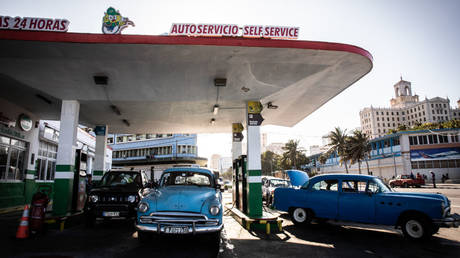
Beijing has hit out at Tokyo once again over its plans to dump more than a million tons of nuclear wastewater into the ocean, claiming Japan is now trying, unsuccessfully, to “whitewash” its controversial project.
Speaking on Friday, Chinese foreign ministry spokesman Zhao Lijian said he had noted reports that Japan had spent huge sums of money attempting to convince people that its controversial plan was safe.
The spokesman claimed that Tokyo’s attempts to “whitewash” the plan to dump the radioactive wastewater into the sea have been unsuccessful. “It can be seen that the Japanese side’s series of whitewashing operations have not eliminated the concerns of their own people, and they have not been able to get through in front of the international community.”
“People from all over Japan, including residents of Fukushima, have continued to take to the streets to express their shock and dissatisfaction with the government’s decision,” he added.
He stated that the Japanese would rather conceal information about the dangerous nature of the water rather than do “hard work” and dispose of the wastewater in the correct manner.
Zhao highlighted that a Japanese cartoon mascot, which represented the supposedly harmless radioactive element tritium, had to be pulled by the government’s information campaign because it triggered a backlash in Japan and abroad. Local media in Japan had previously noted that the ‘cuteness’ of the mascot distracted from the severity of the issue.
According to reports, Japan’s expenditure for public relations campaigns relating to the Fukushima nuclear disaster has more than doubled in 2021, totalling two billion Yen ($18,202,900).
China has repeatedly called on Japan in recent months to reverse its decision to dump the nuclear wastewater from the now-defunct Fukushima power plant into the sea.
Japan plans to release its allegedly treated wastewater into the sea in around two years, but the safety of the plan has been questioned ever since rumors of the project first emerged.
Last year, Greenpeace reported that the wastewater from the plant was more dangerous than the Japanese government had suggested. The organization claims the supposedly treated water still contains “dangerous levels of carbon-14,” a radioactive substance that has the “potential to damage human DNA.” The water is also known to contain radioactive tritium, which is supposedly harmless.
If you like this story, share it with a friend!




